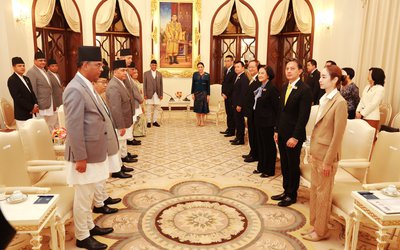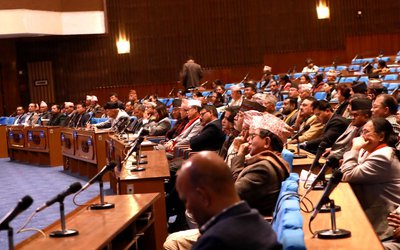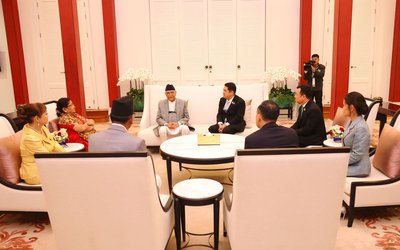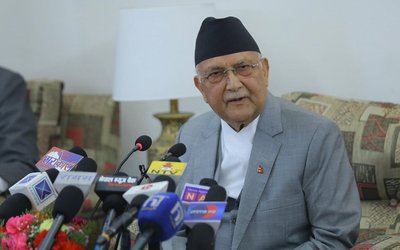More on News





Governments across Asia and the Pacific, together with civil society and other partners, are gathered in Bangkok this week at a meeting, convened by the United Nations Economic and Social Commission for Asia and The Pacific, “UN ESCAP,” to discuss bold actions that countries in this region need to take to end AIDS, by 2030.
On the side-lines of this Inter-Governmental Meeting, the Secretary of Health and Population of Nepal, Shanta Bahadur Shresta, met with Michel Sidibé, Under-Secretary General of the United Nations and UNAIDS Executive Director.
The UNAIDS Executive Director offered strategic technical assistance to the Ministry to improve its governance and key technical competencies in areas it is lagging behind. He also urged Nepal to follow the example of countries in the region, by allocating a greater proportion of domestic financial resources to HIV, and to improve programmatic effectiveness, by investing in high-impact activities for key populations in cities and geographical areas with the highest HIV burden.
The Health Secretary reported that Nepal is prioritising strategic, evidence-informed, and innovative approaches to drastically scale-up HIV testing, and provide anti-retroviral treatment, with a special focus on key populations. The
Ministry of Health decision to upgrade all sub-health posts to health posts with qualified personnel will bring HIV testing closer to the people, including pregnant women. Community-led HIV testing will further drive Nepal’s “test, treat and retain” Programme.
On the opening day of the UN ESCAP Inter-Governmental Meeting on HIV, the Nepal statement of “Ending AIDS, by 2030” was presented, by Honourable Professor Dr Chandra Mohan Yadav, member of the Constituent Assembly of Nepal said, “By 2020, 90 percent of our people living with HIV will be tested and will have their test results; 90 percent of those who test positive will be on treatment and stay on treatment; and 90 percent of those on treatment will have a viral load suppression so they are healthy and well, and will less likely transmit HIV to others. We cannot accomplish this alone. We need strategic partnerships in the region and beyond. We need regional cooperation, for instance to address migration and other mobility issues between our countries. Nepal, therefore, fully endorses the proposed “Regional Framework for actions on HIV, beyond 2015,” towards ending AIDS, by 2030.”






